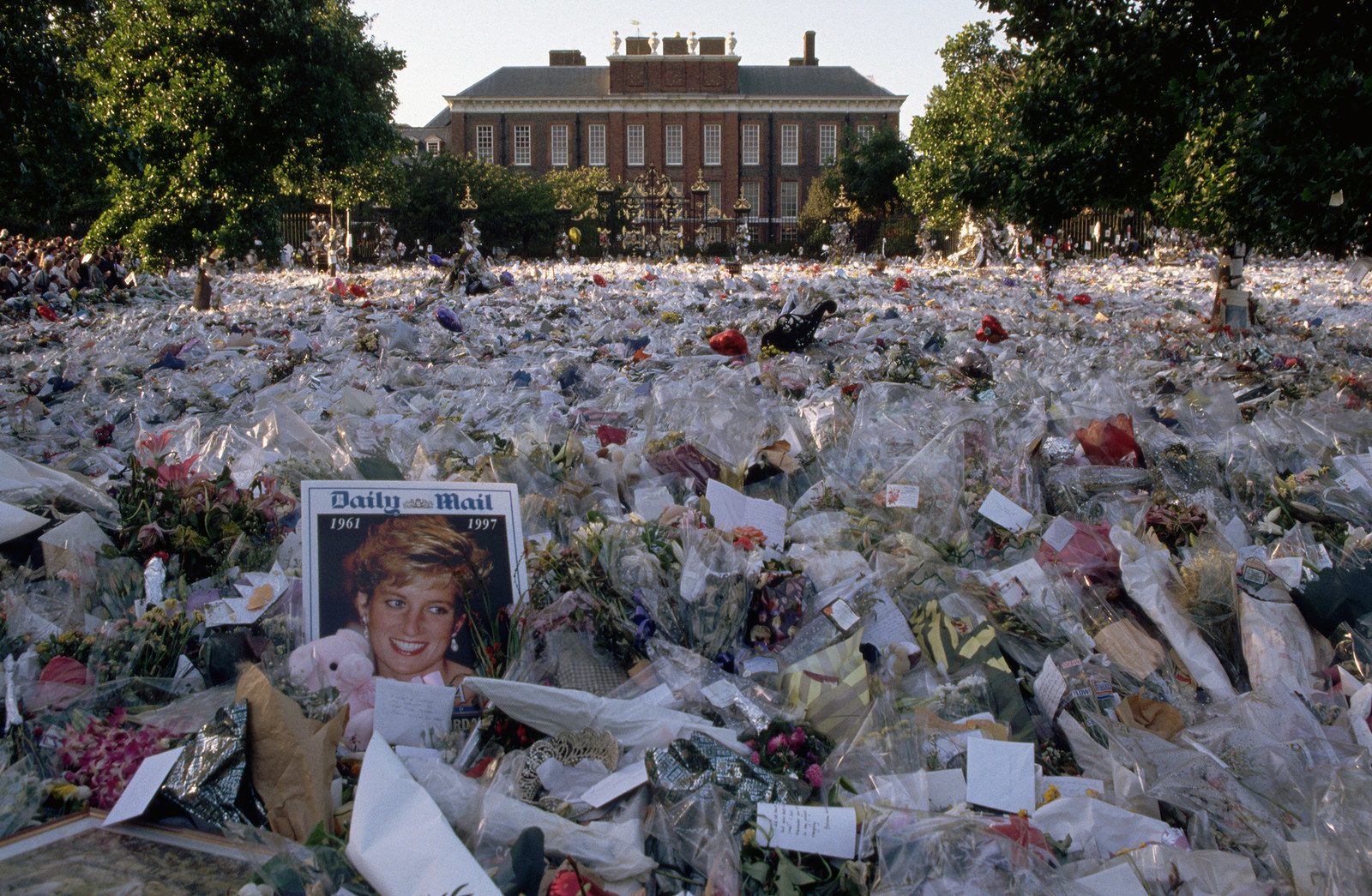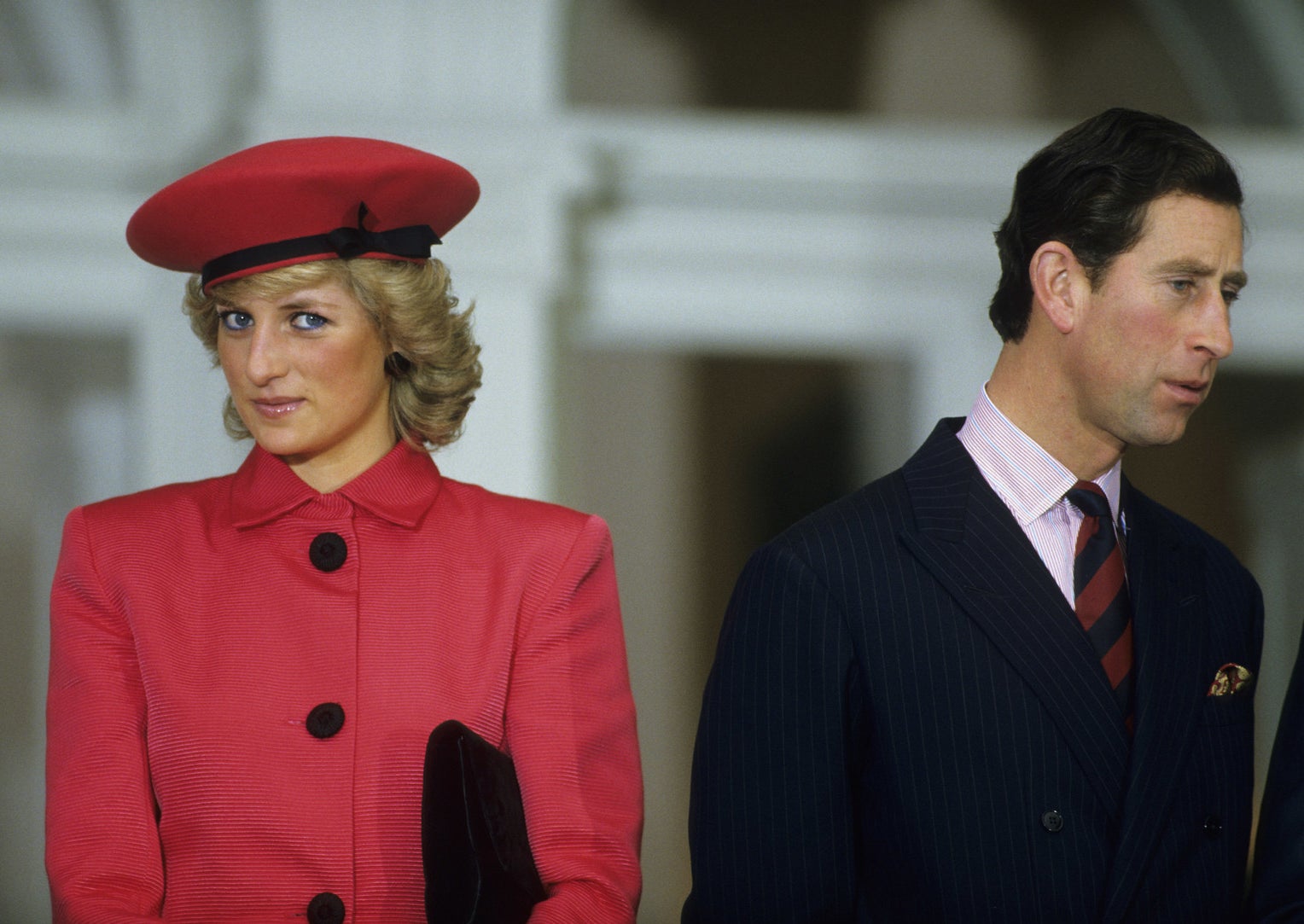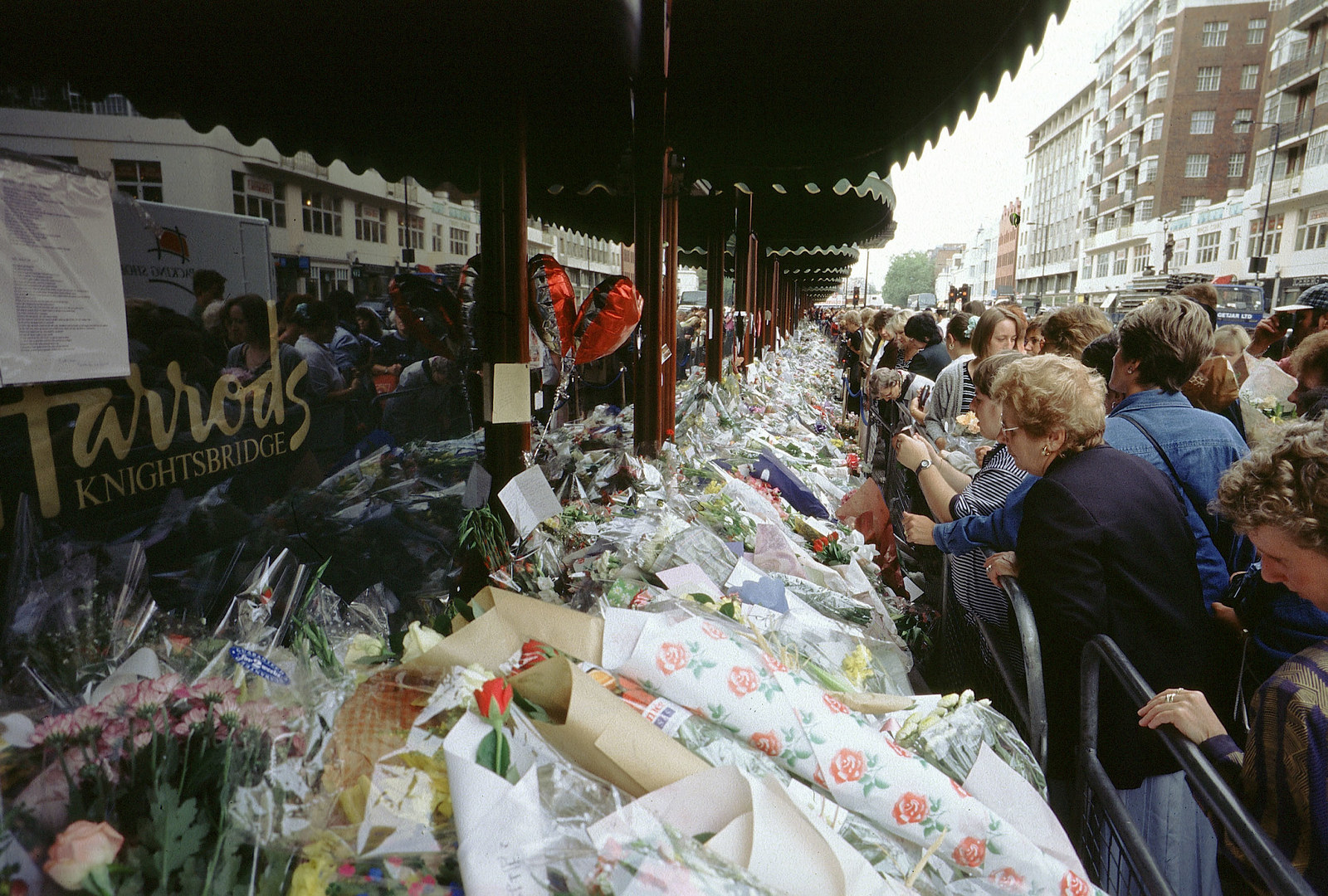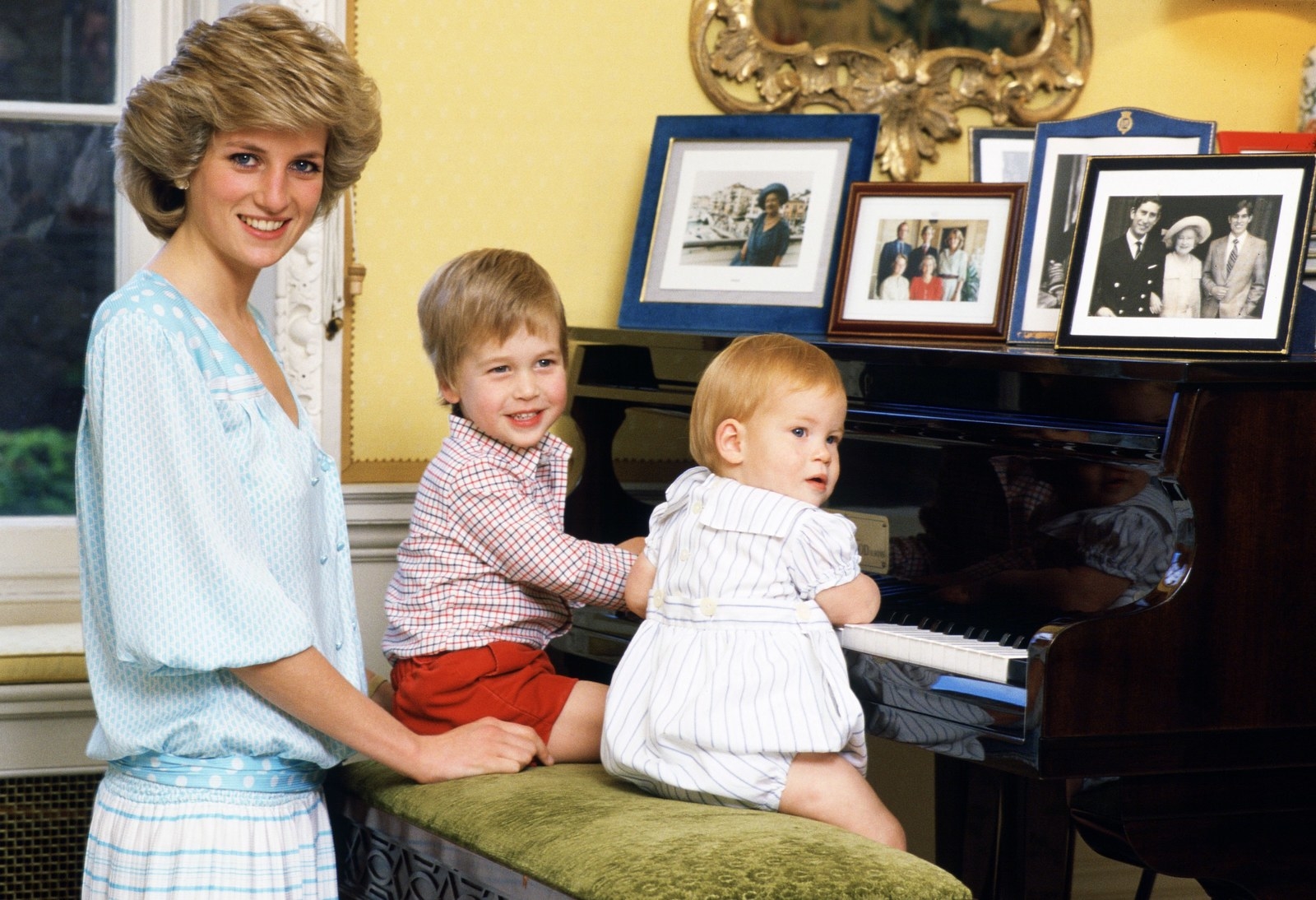
The summer Princess Diana died was a fraught time in our house.
I was 14 that August, and at war with my mother. Those months were filled with a series of battles, both minor and outsize, and with hindsight I can see that at least half of them were in my head. When I exhausted the well-worn tactic of detailing her alleged crimes in my diary and loose-leaf paper I would conveniently leave around the house for her to find, I decamped to the home of a family friend in north London. It was the safest version of running away from home, in which my refuge was still mum-approved, and near enough to her that she could imperiously summon me back if she so desired. On the morning Diana was killed in that car accident in Paris, I had been back home about a week, still smarting from a bruising summer campaign, but doing a delicate dance to maintain the equilibrium between my mother and me.
At this point in her life, my mother has spent more time in the UK than Nigeria. She’s been there since the 1970s, and her cultural knowledge and intimacy with the British psyche is encyclopedic. She hated Thatcher and loved Ken Livingstone back when he was "Red Ken." She’ll tell you the whole plot that led to the death of Dirty Den on EastEnders (the first time), and sing you Anita Dobson’s take on the theme tune. And save a handful of members (notably Princess Margaret and Prince Andrew), my mother had no time whatsoever for the house of Windsor. It wasn’t so much that we were staunch Republicans — what use a king or a queen in this modern age, after all? — than the royal family’s coldness that she could not abide, nor understand.
Their love of traditional protocol was not the issue — my mother can be deeply conservative herself. But the aloofness that seemed to translate into callousness rubbed her the wrong way. For example, my mother remained bitter on behalf of Princess Margaret years after her "second choice" marriage and divorce, no matter the facts of the case. She saved a certain amount of side-eye for the now-dead Queen Mother and her “tombstone teeth,” and would suck her teeth every time the old lady appeared on television. She was no real fan of the queen either, and she rolled her eyes at Prince Phillip (but saved a modicum of pity for Sarah Ferguson).
Like the rest of the nation, my mother had watched the courtship, marriage, adultery and subsequent divorce between Prince Charles and Lady — eventually Princess — Diana, and she had chosen her side early. She was staunchly #TeamDiana. Charles was persona non grata in our house back then, and her position has scarcely softened in the years since.
On that final morning of August 1997, I remember hearing my mother's gasp, which came sharp and raw.
But on that final morning of August 1997, I remember hearing my mother’s gasp, which came sharp and raw, while my brother and I sat in pajamas, watching the news upstairs. I’m not sure if it was the BBC newsreader Peter Sissons who told us the princess was dead, but I remember a somber-looking man, whose face was tired and a little gray. None of us were strangers to death that year — my mother’s own mother was still relatively newly dead and buried — but we had no obvious kinship with Diana. Or so I thought.
My mother’s compassion for strangers has often put us, her family, in positions of varying discomfort: bedrooms offered up with no consultation, voluntold babysitting, unscheduled errands, the works. But one look at my mother’s face as we watched the news showed me something I hadn’t expected to see. Diana’s sudden, senseless death shook my mother. And when she said, “those poor boys” in a small voice, I understood. She glanced over at us, two of her four, and looked so sad that it twisted my stomach. My mother touched the both of us, on our heads, I think, and said a prayer in Yoruba: Olo’un o ni ya wa. "God will not part us." Then she said a stern “amin” to God that was also directed at us, and startled out of our sadness, we followed suit: God will not part us. Amen.
We watched the TV all day, barely moving except for toilet and food breaks. Though I don’t remember very much of the day itself now, I know I was mostly focused on William and Harry, wondering how they were doing. I was just about growing out of childish fantasies of princes and escape that year but Prince William was born five months almost to the day before me, and he was perhaps the most famous age-appropriate boy in the UK to have a distant crush on. I liked his face, so similar his mother’s back then: open but shy, girlish except for that strong, almost horsey jaw. It was harmless, the perfect canvas for a teenage girl’s projections. The misfortunes he and his brother faced had seemed mundane to me before Diana’s death — divorce is after all a liveable human nightmare, even after both your mum and dad’s innermost thoughts have been printed in the daily newspapers. But this tragedy, so sudden and avoidable and violent, made me ache for them.
I thought of my summer of muted combat with my mum, and wondered what the last thing Diana might have said to William or Harry might have been. I thought of being motherless, as I watched the TV reporters at Diana’s residence, Kensington Palace, conducting person-on-the-street interviews with shell-shocked Londoners. One of the more memorable mourners was a black woman sobbing “Di-a-na!” brokenly, while her child looked bewildered by the display. We did not agree to this before we left the house, the child’s face seemed to be saying reproachfully. I listened to my mother hand-washing clothes in the bathroom, tossing out opinions about the life and death of Diana, and the “useless” royal family. We went to sleep that Sunday night oddly sad and heavy, full of feelings about a woman we knew-but-did-not-know.

As the days went on, and the flowers piled up and the nation reached new hysterical heights of public grief, the mood became heavier and more oppressive. Shock had worn off by now, and it had hardened into something meaner and angrier. In the run-up to her funeral a week later, huge swaths of the nation cycled through an extraordinary run of public emotion. We remained unyielding in our house: The royal family had never been celebrated here, and this closed off, seemingly detached front they were presenting did nothing to change our opinion. One evening, as flowers continued to accumulate in Kensington, and journalists at the scene became more and more incredulous at the unfolding tableau, my mum finished her shift at work and announced that we were going to Kensington.
So we got on the tube and traveled west.
Twenty years of distance from that moment means I can say we were being witnesses, although for what purpose?
To understand the crush of people outside the palace the night we were there, you have to have some experience of big cities. I was growing up between Lagos and London, and so I thought I was inured to the metropolitan press of bodies, but this was something else. I remember it was wet, and I had to hold onto my younger brother’s hand as my mother forged a path ahead of us, looking back to make sure we were still close. The air around us filled with all sorts of languages, and while the volume was loud, it was also strangely hushed; an attempt at respectful quiet, I think. People held hands and stared at the flowers. I spotted so many black women of a certain age — which is to say, my mum’s age — reading the condolence notes and pulling along their own children. Some people were crouched close to the ground, reading the florid prose of sympathy, while others trailed their hands over the tops of the bouquets, or the stuffed toys that had been left there. I caught the eye of many other kids, who like us, looked both confused and resigned.
My mother had bought yellow flowers, and we walked to a less crowded place where she laid them down. She murmured a prayer under her breath, and then we just stood there, taking it all in. Twenty years of distance from that moment means I can say we were being witnesses, although for what purpose? The best I can think is that a spectacle is to be looked at. And we were fulfilling our part in that contract.
That night in central London, half our family got on the tube at Kensington High Street, and traveled a few minutes to Knightsbridge. There stood Harrods, the department store owned by Mohamed al-Fayed, the father of another victim in the princess’s car, Diana’s friend Dodi al-Fayed. My mother said we were going to sign the condolence book.

Over the years, talking to my first-generation British-African friends has revealed something uncanny. There is no love lost between our parents and the British royal family. My mother was still a girl when the queen toured Nigeria in 1956; for those who can’t remember that visit, there are ample examples of the lasting legacy of empire and colonization. But our mothers loved Diana. The tragedy of her life is compelling, but near as I can see it, so was her performance of stoic sadness, the overcoming of a bad match, the (sadly temporary) triumph over the "evil" of the royal family via divorce. It didn’t matter that Diana was herself born with a silver spoon in her mouth. She was a noblewoman — the daughter of a viscount who would become an earl — and her recent ancestors were royal ladies-in-waiting. She wasn’t some regular commoner.
But Diana married young. She was 16 when she met the heir to the throne, and 20 when she married him. And as she pointed out in the famous 1995 Martin Bashir interview (broadcast on my birthday), there had been “three of us in this marriage, so it was a bit crowded.” That’s a leveler of the highest caliber. Later, of course, no one would claim to not be cognizant of Diana’s own media skills, but Charles cast the first stone. Cheating husbands provoke a certain kind of cultural ire from women — he was marked in my mother’s eyes, and in the eyes of so many aunties. Hating what Charles had done to her was only the start of their affection for her.
Diana was counter to everything the royals, ruined by their stiff upper lip among other things, represented.
By the time you factored in Diana’s other attributes: her devoted motherhood, being a tirelessly compassionate charity worker (my mother, a care worker, was profoundly moved by the princess taking off her gloves to hold the hands of people living with AIDS), and so on, she was a firm favorite. Those eyes, equal parts soft and steely, were the eyes of someone the aunties recognized.
When Diana died, my friend told me, half-jokingly, that her Ghanaian-British mother shut down her cafe for a week to mourn. Another friend told me her mother added William and Harry to her prayer list at church. When I think of the kitschy, unlovely commemorative china that royalists love to collect, I am reminded of the party favors handed out at many a Nigerian function (birthdays, funerals, weddings). The resemblance between those ugly, cheap things — ceramic dishes, plastic bowls and cups, flimsy umbrellas, etc. — and the slightly more expensive royal tat suggests a kinship between unlikely tribes that becomes less odd the closer you look. They both speak to a certain kind of ceremony and sense of occasion, events that are worth marking. So whether it be the union of two Nigerian commoners, or the birth of a prince, they are significant. Turns out, the human desire to bestow importance via branded tchotchkes transcends and unifies all sorts of cultures. And Diana’s great legacy was, of course, her humanness.
Diana was a counter to everything the royals, ruined by their stiff upper lip among other things, represented. She was warm where they were cold, a flesh-and-blood human instead of a robot. And on top of that, everything she endured was borne of a love for her children, in securing their place, even in a family where she did not fit in. It was clean, rich white ladyhood, but the type aunties could relate to and get behind. And because not everything is so noble and highfalutin when an African does it, here’s a less noble reason my mum liked Diana: She was stylish, and more importantly, she grew in her style. That’s as good a reason as any to root for a woman, no?

Diana was the highest-profile victim of that Paris car crash, but she was not alone. Mohamed Fayed’s grief was in stark contrast to the royal family’s: clearly expressed, and sometimes uncomfortable to watch. It appealed both to my mother’s empathetic nature, as well as the dramatic Nigerian in her. Pain is not to be buried away, in my mother’s book: you stomp and rave until it hurts a little less. ‘Expel it before it eats you up’ is the credo, and Mohamed was singing from the same hymn sheet.
When we arrived at Harrods that cold September night, there was a lengthy queue all along the pavement. Umbrellas clumsily threatened to poke out eyes as people jostled to keep in line, but everyone seemed content to wait their turn to sign the books. I recall the wet cold seeping into my bones slowly until my jeans felt damp all the way through when the water and sandwiches appeared, delivered by Harrods employees, and designed to keep morale up as we waited. (My mother thought this was an act of the highest elegance and thoughtfulness.) We trudged slowly forward, until finally, we reached the front. My mum sat down at the table and handed me her bags so she could write unencumbered.
Diana's final, horrible exit was merely the culmination of an act that had begun all the way back in the summer of 1981.
I don’t recall verbatim all the words she wrote, and neither does she. I know what she wrote, though, because I read over her shoulder as her right hand moved across the page. My mother blessed Dodi and Diana, hoped they were at peace, and that their pain had been brief. She expressed sadness for Diana’s boys, and the Fayed family, and hoped they found reserves of fortitude to bear the loss. And then she wrote that the royal family had killed Diana, and they (the people, but really she, the person) would never forget that. I hope I am not making a false memory here but here’s a sentence I remember starkly: “We know the royal family killed you and Diana, Dodi.”
Unsettled, I asked my mother if she meant that literally, and she shrugged. Metaphorical or not, my mother blamed the royal family for the “ruination” of Diana. The minute she married into it she had been doomed. This final, horrible exit was merely the culmination of an act that had begun all the way back in the summer of 1981. With a flourish, my mother signed her message, writing out her full name, and our full address. When I pointed out that a powerful family that could plan and execute a murder to look like an accident could easily kill us since we had so handily provided our mailing address, my mother scoffed. They can’t kill us, she retorted calmly and Nigerianly.
I wrote in the book too, a short note for William and Harry and Mohamed, expressing how sorry I was for their loss. And then we went home on the crowded train, filled with people reading newspapers that were still doing brisk business off the back of “the people’s princess.”

No one ever came to our door to arrest us for hyperbole, or propagating conspiracy theories. Based on outlandish internet theories (a term I use loosely) over two decades, I can now appreciate that my mother’s note was probably not the wildest message in those heavy books of condolence — not even close. 1997 was a weird year, and in many ways, a bad one for me. But that whole experience remains one of the more formative and communally British things I’ve ever witnessed.
It’s easy to scoff at the cult of Diana: We do, after all, enjoy a tragic dead white woman more than any other flavor. But the mourning in the wake of her death was as much about the senseless tragedy as it was about her, herself. For whatever reason, people connected with her, in a way that no other royal could ever claim. Somehow, the rules didn’t apply to her. Indeed, that same affection (or even just tolerance) many people have for Harry and William is a direct drip-down effect of what they projected onto and felt for their mother.
My mum and the coterie of aunties who still love her and drink tea from their Diana mugs are in that number. In a way, I am too. ●
